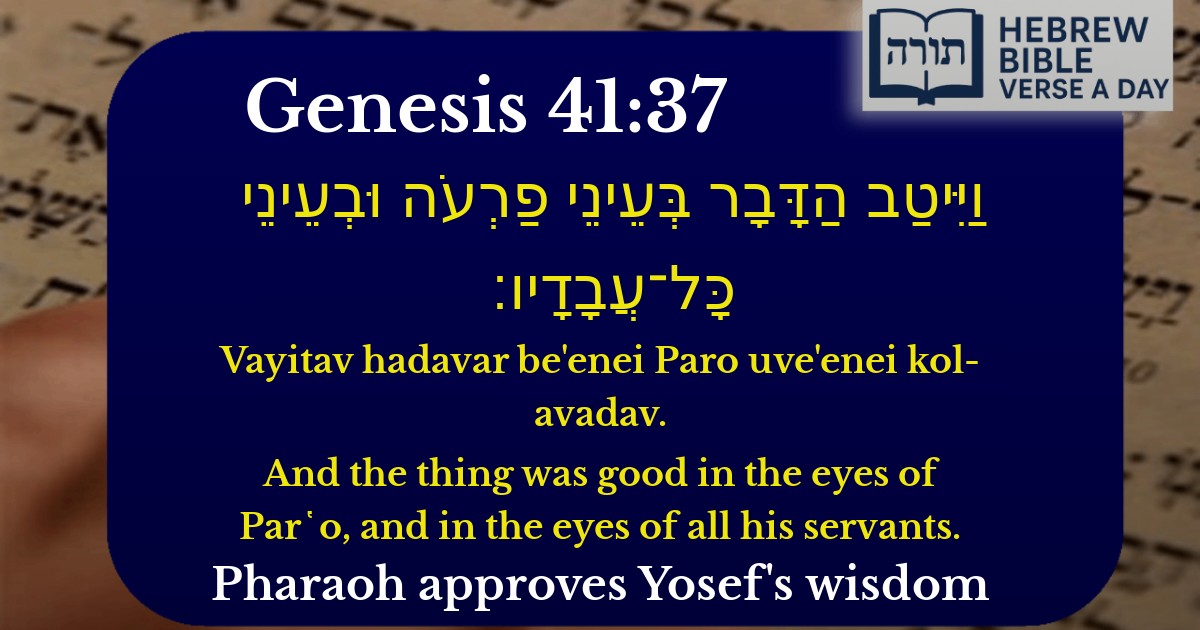Join Our Newsletter To Be Informed When New Videos Are Posted
Join the thousands of fellow Studends who rely on our videos to learn how to read the bible in Hebrew for free!
Hebrew Text
וַיִּיטַב הַדָּבָר בְּעֵינֵי פַרְעֹה וּבְעֵינֵי כָּל־עֲבָדָיו׃
English Translation
And the thing was good in the eyes of Par῾o, and in the eyes of all his servants.
Transliteration
Vayitav hadavar be'enei Paro uve'enei kol-avadav.
Hebrew Leining Text
וַיִּיטַ֥ב הַדָּבָ֖ר בְּעֵינֵ֣י פַרְעֹ֑ה וּבְעֵינֵ֖י כׇּל־עֲבָדָֽיו׃
וַיִּיטַ֥ב הַדָּבָ֖ר בְּעֵינֵ֣י פַרְעֹ֑ה וּבְעֵינֵ֖י כׇּל־עֲבָדָֽיו׃
🎵 Listen to leining
Parasha Commentary
📚 Talmud Citations
This verse is not quoted in the Talmud.


Context of the Verse
The verse (Shemot/Exodus 1:21) appears in the narrative where Pharaoh initially attempts to suppress the Jewish people through harsh labor. However, when the midwives Shifra and Puah defy Pharaoh's decree to kill newborn Israelite boys, Hashem rewards them with households (families). The verse states that Pharaoh and his servants approved of the midwives' actions, despite their disobedience to his earlier command.
Rashi's Explanation
Rashi explains that the phrase "וַיִּיטַב הַדָּבָר" ("the thing was good") refers to Pharaoh and his servants recognizing that the midwives' defiance was justified because they acted out of fear of Hashem. Rashi cites the Midrash (Shemot Rabbah 1:17), which states that Pharaoh and his court acknowledged the righteousness of the midwives, as their actions aligned with divine morality rather than human cruelty.
Ibn Ezra's Perspective
Ibn Ezra suggests that Pharaoh and his servants may have reconsidered their harsh decree after seeing that the midwives' compassionate actions did not harm Egypt. Instead, the midwives' refusal to kill the infants demonstrated moral integrity, which even Pharaoh could not condemn.
Midrashic Interpretation
The Midrash Tanchuma (Shemot 5) elaborates that Pharaoh and his advisors recognized that the midwives acted with divine wisdom. Their refusal to murder innocent children revealed a higher ethical standard, causing even the wicked Pharaoh to acknowledge their righteousness.
Lessons Derived